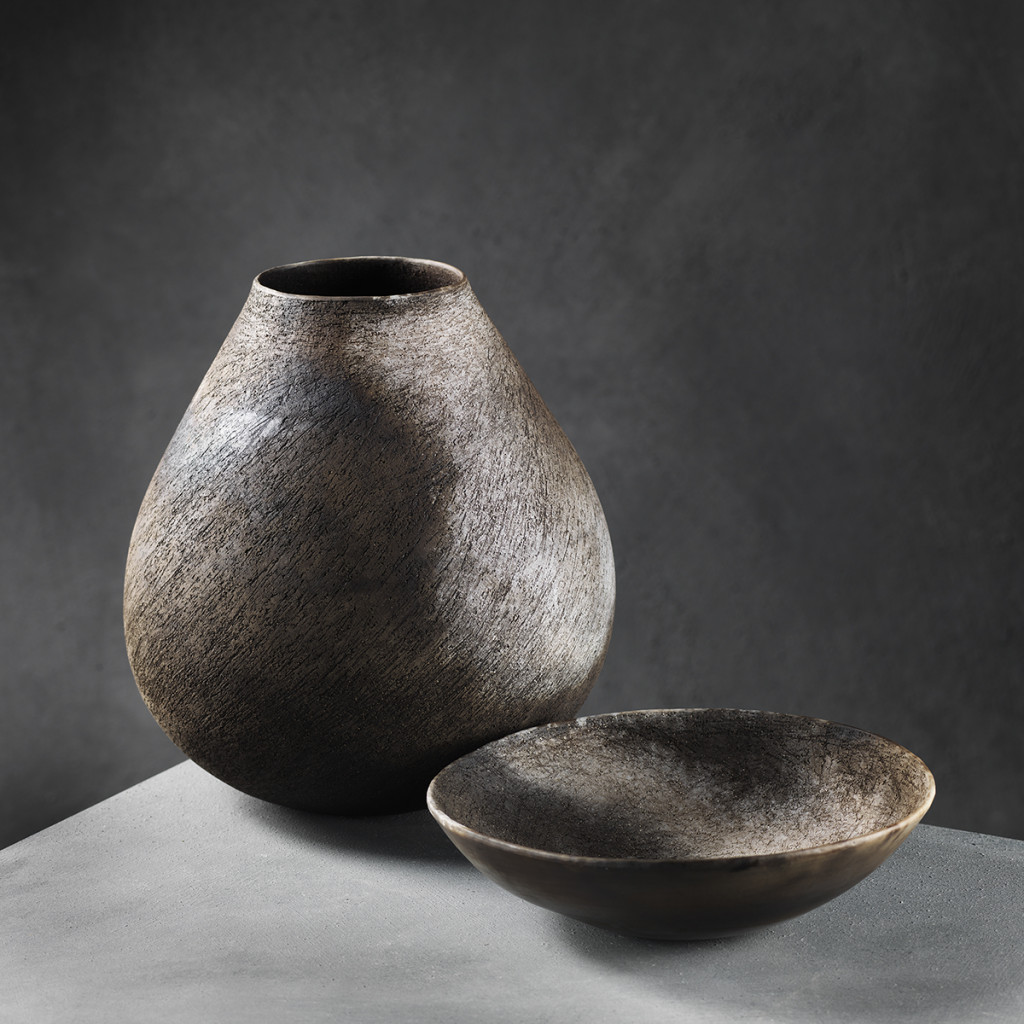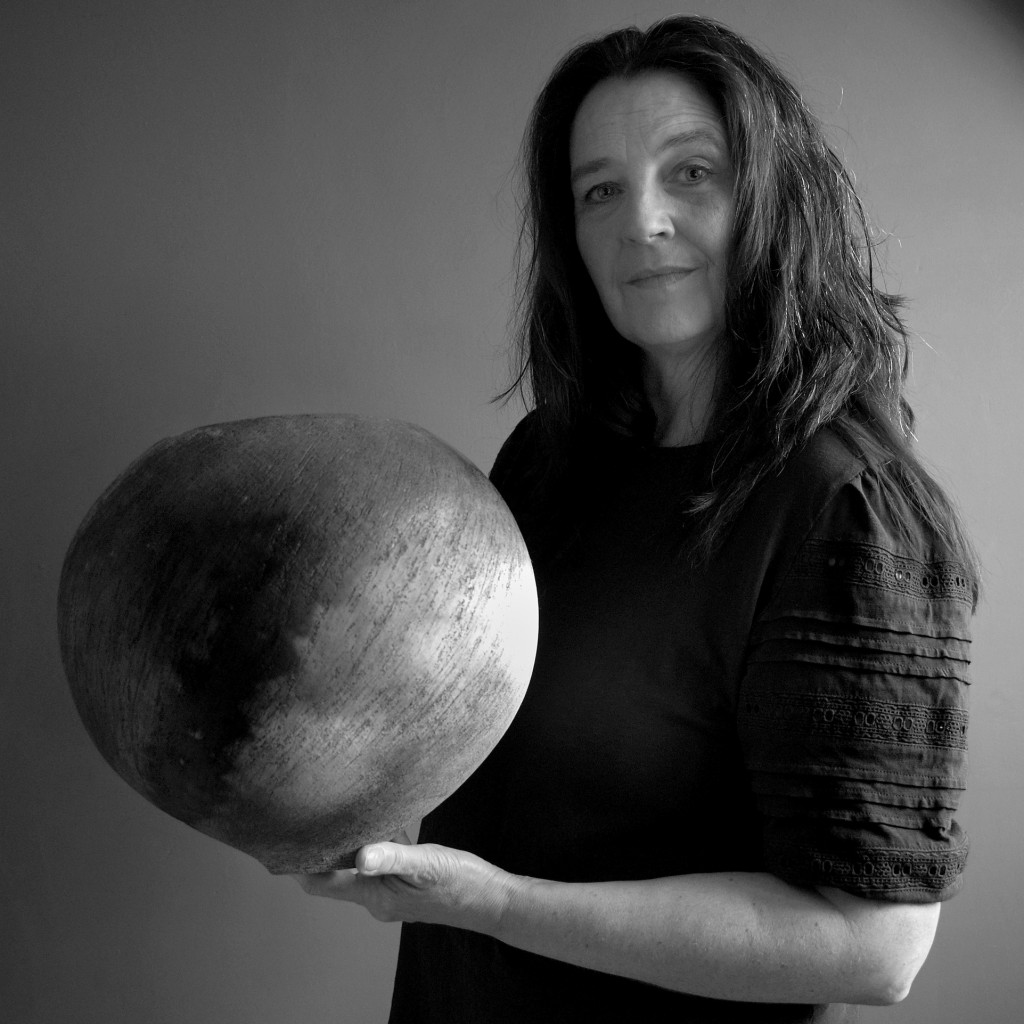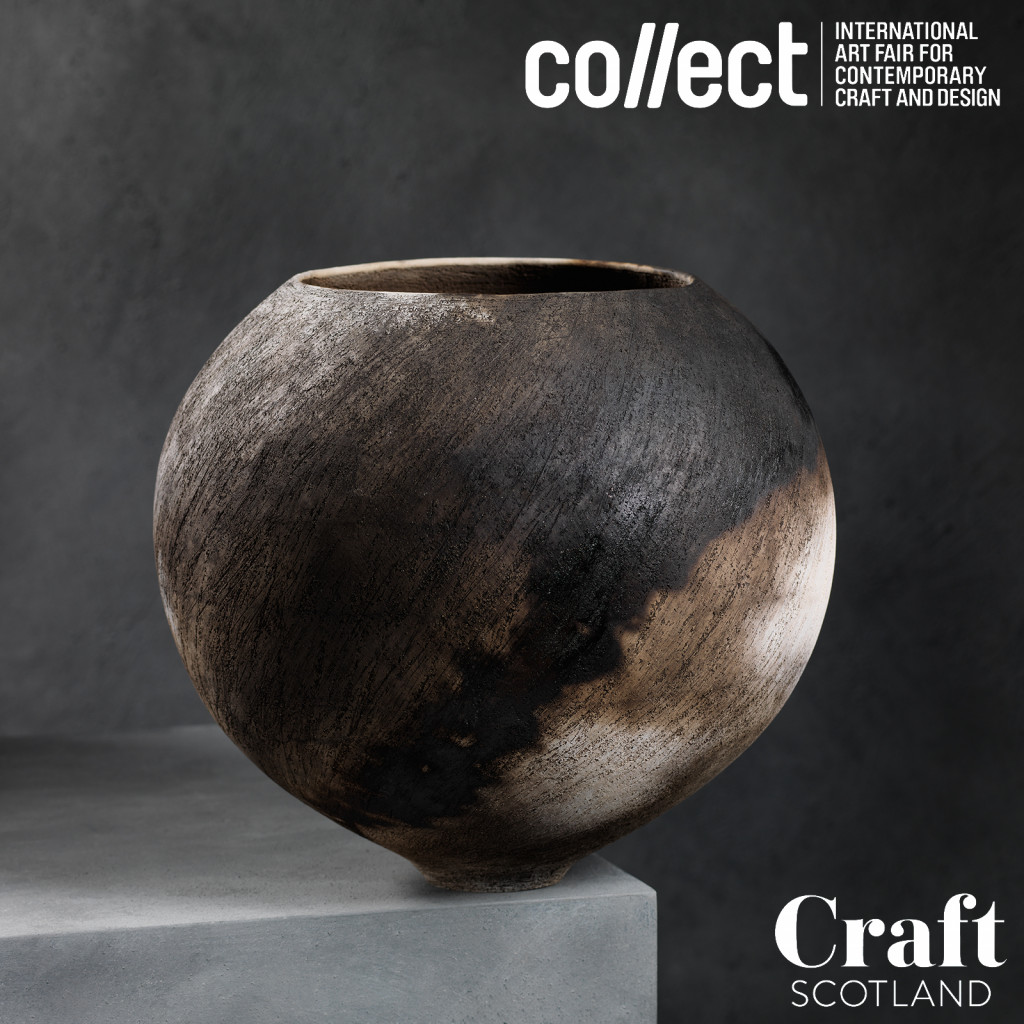Q&A with Craft Scotland for Collect 2023
My work was selected by Craft Scotland to be shown at Collect Art Fair, the Crafts Council’s flagship annual international event. The following is a conversation we had about my creative practice.
CS: Tell us about your practice and what led you down your chosen path as a maker?
REJ: I have had an affinity with clay since childhood: from first touch at high school I found my vocation. After graduating in Studio Ceramics, I made thrown tableware for many years and started hand-building in 2017. From my studio in rural Dumfriesshire I now make statement pieces and curated collections for interior settings.
Moving away from the constraints of function has enabled me to further explore form and increase the scale of my work.
CS: Tell us about your materials and techniques? What would you say is your unique approach?
REJ: I make smoke-fired, hand-built clay vessels working with textured clays, some of which I blend myself. I use the ancient method of coil building where clay is hand-rolled and joined to gradually build up the walls of a vessel. Hand, heart and clay come together as I consciously make the marks which refine the form, creating the finished surface and the detail at foot and lip. The vessels are bisque-fired before a final smoke firing where combustion creates unique markings on the surface.
CS: What inspired the collection that you are presenting at Collect 2023? This could be a new approach, a technique you’ve been exploring, a conceptual idea or a local source of inspiration…

REJ: I am presenting a collection of three smoke-fired moon jars at Collect 2023. I started making moon jars in 2019 after seeing Lucie Rie’s 17th Century moon jar at the British Museum which she had on loan from her friend Bernard Leach. Unlike the traditional Korean thrown pieces my moon jars are coil-built.
Exploring the spherical form and working with symmetry requires concentration and focus. I have developed the forms with the small foot detail to create lightness and a sense of floating.
I am also presenting a paired composition piece called Holding – Offering inspired by European neolithic works from matriarchal societies and notions of giving and containing.
CS: What is your favorite detail of the collection you are presenting at Collect?
REJ: The combustion process brings a uniqueness to every facet of the smoke-fired work, moving around the vessel will reveal a new aspect and the surfaces are highly responsive to changes in light. For me this keeps the work alive as you see something new each time you view it.
CS: What do you hope the viewer will take away from this work?
REJ: My intention is that some of the meditative focus of making is retained within the work. People will react to the work in their own way but the viewer may feel a sense of serenity and perhaps also a connection to our ancestral past.

Q&A with Craft Scotland for Collect 2023 Read More »
